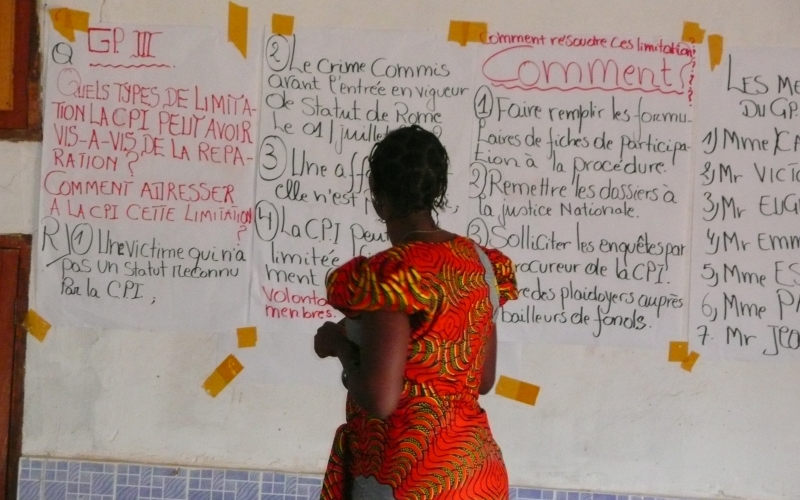Turning Rhetoric into Reform: New Victims’ Rights Working Group Paper on Strengthening ICC Outreach and Victim Participation

- The VRWG is a network of 179 civil society organisations working to uphold the rights and interests of victims in International Criminal Court (ICC) proceedings. Co-led by FIDH and REDRESS and hosted by the Coalition for the ICC, the VRWG was reconvened in 2024 to renew its engagement on victims’ rights at the ICC, including contributing to the Court’s review of its 2012 Victims’ Strategy. While the current revision of the Strategy offers an important opportunity, consultations with Court staff and VRWG members have revealed concerns about the lack of clarity, consistency, and meaningful inclusion of victims in the revision process.
- This briefing paper draws on those consultations to identify concrete areas for reform. It outlines persistent challenges and offers targeted recommendations to address three key issues: (1) the absence of early, two-way outreach; (2) restrictive jurisprudence that undermines meaningful victim participation; and (3) operational and procedural obstacles, including serious shortcomings in legal aid implementation.
Ensuring Early, Inclusive, and Sustained Outreach from the Situation Stage
Outreach is foundational to meaningful victim engagement and accountability. Yet the ICC continues to treat it as a secondary activity, leading to its underfunding and inconsistent application. Inconsistencies in how the Court defines “situation” and “outreach” across various sections delay communication with affected communities, particularly during the preliminary examination phase. When victims are uninformed or excluded from the earliest stages of proceedings, it becomes difficult to build trust and ensure informed participation later on.
The VRWG urges the Court to adopt a coherent, victim-centred definition of outreach that enables reciprocal communication with communities, integrates feedback, and is resourced from the outset. Outreach strategies must be locally rooted, multilingual, and adapted to context-specific needs, including those related to gender, trauma, and digital access.
Participation Must Be Consistent, Accessible, and Supported by Adequate Resources
Victim participation is a hallmark of the Rome Statute and central to the ICC’s legitimacy. However, restrictive and inconsistent judicial decisions have narrowed the scope of participation and undermined victims’ standing at all stages of proceedings. The right of victims to choose their legal representatives has also been inconsistently applied.
In parallel, the delayed implementation of the 2024 Legal Aid Policy and arbitrary budget caps continue to block victims’ legal teams from carrying out their work. These challenges are compounded by administrative hurdles, limited access to court documents, unrealistic submission deadlines, and a lack of procedural clarity. Left unaddressed, these issues disproportionately exclude already marginalised groups and erode confidence in the Court’s ability to deliver justice.
Turning Commitments into Concrete Change
The paper sets out six key recommendations aimed at the Court and States Parties for urgent action:
- Institutionalise Early, Victim-Centred Outreach
- Ensure Coherence and Consistency in Victim Participation
- Fully Implement and Operationalise the 2024 Legal Aid Policy and Remove Arbitrary Legal Aid Caps under a Fair and Equitable Funding System
- Reduce Procedural and Logistical Barriers to Participation
- Embed Accountability and Evaluation into the Strategy’s Implementation
- Ensure Sufficient Funding and Inclusion of Victims’ Rights into Key Performance Indicators
ICC States Parties also have a critical role to play. They must ensure that the revised Victims’ Strategy is adequately funded, that legal aid is fully implemented, and that performance indicators align with a rights-based, victim-centred model of justice.
The ICC’s commitment to victims is what sets it apart within the international justice system. In the face of mounting external threats, from political backlash to shrinking multilateral space, realising this commitment is not optional. It is essential to the Court’s credibility, impact, and long-term survival.
